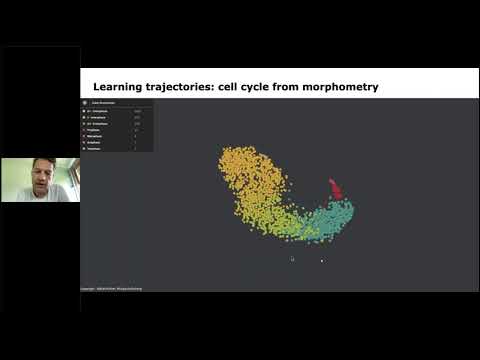Description:
Explore interpretable machine learning techniques for modeling drug perturbations in single-cell genomics in this 36-minute conference talk. Delve into approaches from deep representation learning used to identify the gene expression manifold and understand cellular variation. Learn about the compositional perturbation autoencoder (CPA), a deep autoencoder developed to describe the impact of drug or genetic modifications on cellular states. Discover how CPA enables interpretable modeling of perturbations, prediction of novel effects, and in-silico generation of putative interaction effects. Examine examples of CPA predicting dosage-specific drug effects and combinatorial genetic interactions. Gain insights into single-cell analysis for understanding cell fate, machine learning-based cell lineage estimation, and the application of generative neural networks in style transfer and domain adaptation for cellular studies.

Interpretable Machine Learning to Model Drug Perturbations in Single Cell Genomics
Add to list
#Computer Science
#Machine Learning
#Science
#Biology
#Genomics
#Data Science
#Bioinformatics
#Transcriptomics
#Epigenetics
#Epigenomics
#Computational Biology
#Interpretable Machine Learning